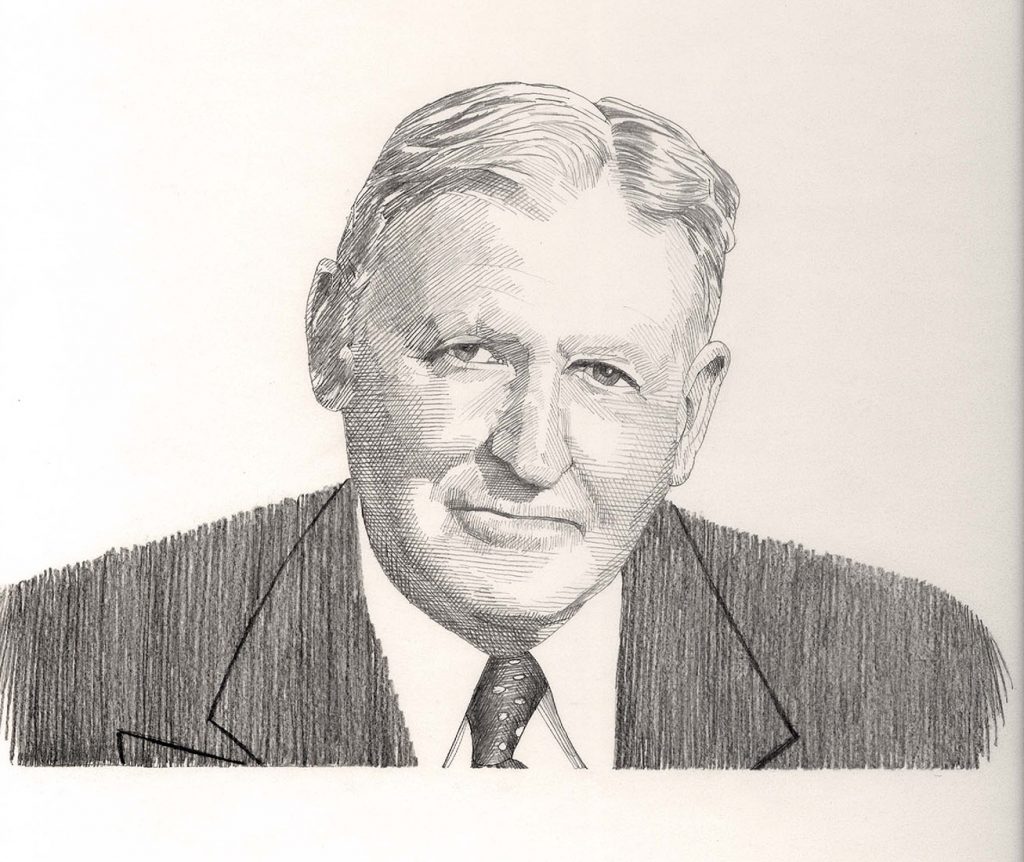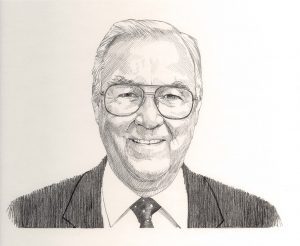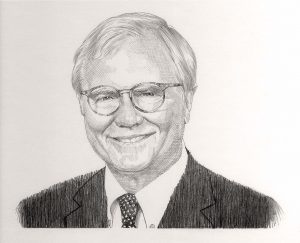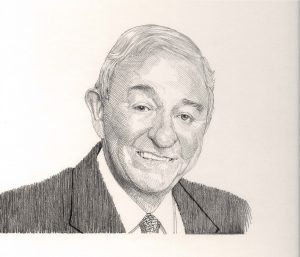In a memorial to its co-founder, president, CEO, and chairman for more than 50 years, the newsletter of Alabama Dry Dock and Shipbuilding Company said:
“The high esteem in which David Dunlap was held by every worker at this company, by members of the marine industry throughout the nation, as well as by the entire local community, is evidenced in the numbers of people from all walks of life who paid this last tribute to this remarkable man. For those closest to him, the loss will be immeasurable. But the legacy of high ideals which he leaves will sustain us in our grief and challenge us to greater endeavor throughout the years to come.”
David R. Dunlap was born in Mobile on June 19, 1879, to David R. Dunlap and Virginia Wheeler Dunlap. He was educated at University Military School where he was a commanding officer of the first graduating class. He received a bachelor’s degree with honors from The University of Alabama at age17 and completed his education in law.
In 1916, Mr. Dunlap, then president of Alabama Iron Works, joined his cousin, George Dunlap, who led Mobile Marine Ways, to consolidate holdings and buy Ollinger and Bruce Dry Dock. Gulf City Boiler Works became a part of the shipyard operations which became Alabama Dry Dock and Shipbuilding Company (ADDSCO) in 1917.
Mr. Dunlap married his wife of 50 years, Tallulah Gordon Sage in 1918. This was followed in the next three years by two children, Tallulah Sage Dunlap and David Richardson Dunlap Jr. Five grandchildren followed.
World War I brought challenges for ADDSCO, which trained some 4000 workers and eventually built three minesweepers, two steamers, and two large sea-going barges for the U.S. government.
Following facilities and property expansion, in 1941, ADDSCO contracted to build and outfit 20 Liberty-type ships. Eighteen months after the first keel was laid all 20 ships were ready for duty. To do its part for World War II, ADDSCO maintained 36,000 employees at its peak, built 102 tankers and repaired or converted an additional 2800 vessels.
In years that followed, ADDSCO helped build Mobile’s Bankhead Tunnel, jumbo-sized tankers and pioneered other structural and equipment conversions. Ultimately 700 new ships were constructed and 24,000 vessels were repaired or converted during Mr. Dunlap’s career at ADDSCO.
Mr. Dunlap was as much a part of ADDSCO as its foundations and crossbeams. His vision brought together the capital and workforce to form a successful all-around ship repair and construction facility in the Port of Mobile. An original capitalization of $600,000 created a billion dollars of income during his leadership.
Mr. Dunlap loved to fish and hunt and he faced tough assignments or near impossible undertakings with courage and determination. His contributions to his city, state, and nation spanned two world wars, a depression, and changing times.
He was the original cashier and an original stockholder of Merchants National Bank (now Regions Financial Corporation) where he served as a director for many years. Other directorships included Waterman Steamship Corporation, Mobile Towing and Wrecking Company, Alabama Power Company, Shipbuilders Council of America, and the Mobile and Alabama Chambers of Commerce.
Mr. Dunlap served on the Board of Governors of Spring Hill College from which he received an honorary degree.
Upon the loss of his son in the Pacific Theatre during World War II, Mr. Dunlap established an education trust to benefit Mobile and Baldwin County students. The David R. Dunlap Jr. Memorial Trust has provided deferred payment, low-interest education loans to more than 1000 students.
The Mobile Press-Register editorialized about Mr. Dunlap at his death in November 1968:
“His name came to be known almost synonymously with ADDSCO because of his prime role in its success. His sphere as a builder extended beyond ADDSCO and his other business interests….He made himself an outstandingly valuable citizen in helping to build Mobile into the famed industrial seaport it has become during his eminent career. His long and useful citizenship is one of the good fortunes from which Mobile benefits and for which all can be thankful.”




